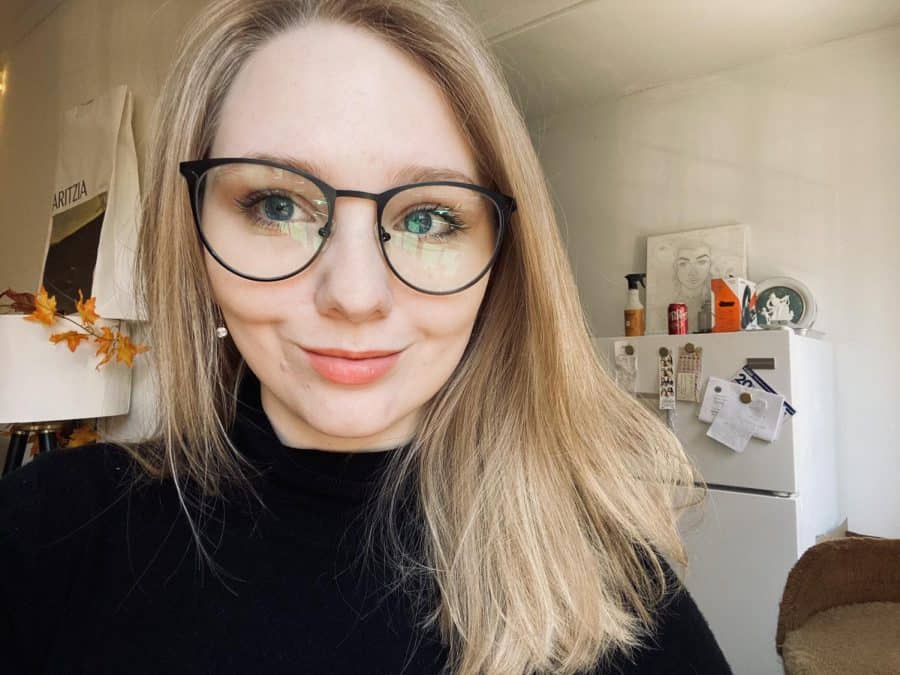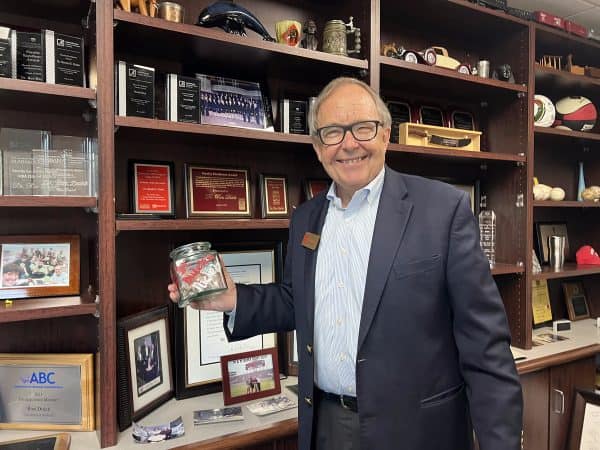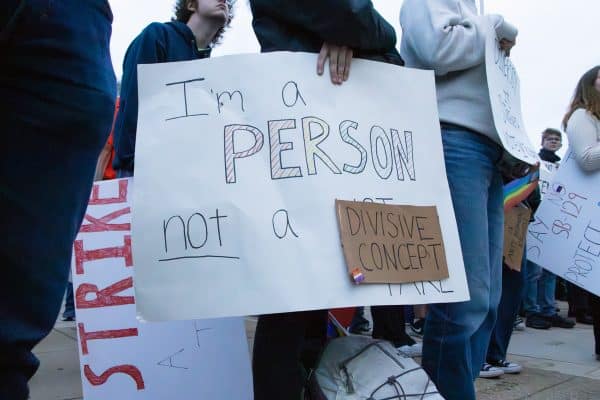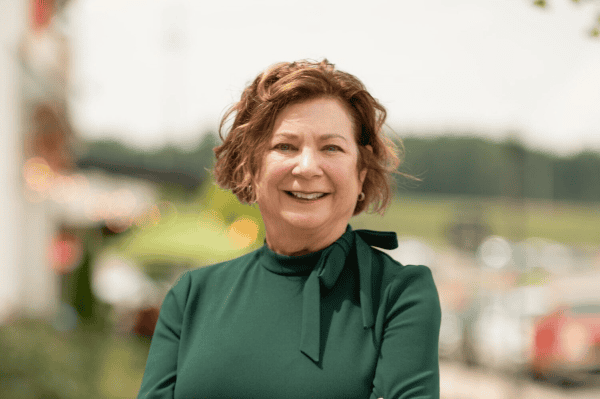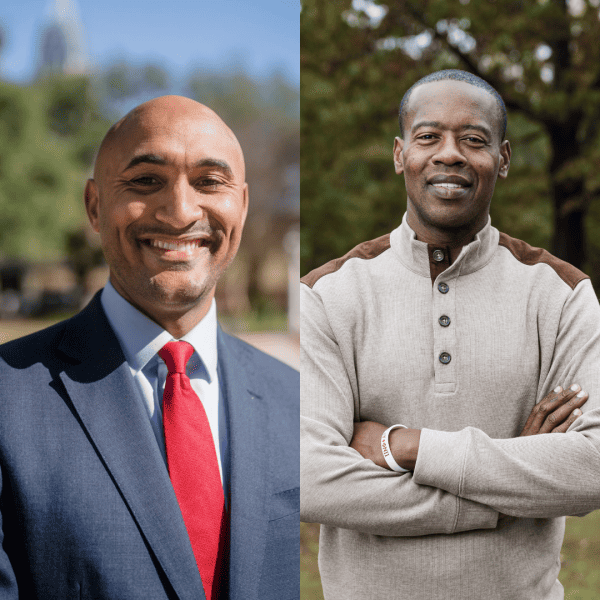Opinion | Chronic illness and disability awareness is important
Jona Pidgette, a junior majoring in biology, founded Empathy and Education to advocate for a better societal understanding of students with disabilities.
August 18, 2021
Students with chronic illnesses and disabilities have a lot placed on them. They must learn how to advocate for themselves, receive the accommodations they need to succeed in their academics, and ensure their own physical and mental health. In reflection of these students’ experiences, Jona Pidgette created Empathy and Education, an organization advocating for a better societal understanding of their experiences.
Name: Jona Pidgette
Major: Biology on the pre-med track
Classification: Junior
Hometown: Memphis, Tennessee
What is the name of your organization?
We’re called “Empathy and Education.” I chose the name because I believe those two concepts are the cornerstones of the organization’s mission. The name gets across exactly what I want our group to do.
I founded it over the summer and am finally in the beginning stages of establishing our organization. We will be at Get On Board Day. Right now we are completing our SOURCE regulation and finalizing our faculty advisor, and then we will be good to go.
Why now?
I’ve wanted to do this since I was a freshman, but I struggled with my own illnesses. At that time, I was just focused on improving my quality of life. Between withdrawing from my classes and figuring out which medications worked for me, it was impossible to take on something else.
Once I finally did have the resources I needed, I still thought to myself, “Am I the right person to do this?” which I think comes from a lot of internalized ableism. I would think that I wasn’t healthy enough to be a part of such a commitment, but I realized that this mindset would keep me from doing something that could help a lot of people.
Do you have any exciting plans for the new year?
Right now, my personal focus is getting involved in Suicide Prevention Month. Something that most people don’t know is that people with chronic illnesses and disabilities are actually nine times more likely to die of suicide than the average population.
I feel as if mental illness can be overlooked, but it is such an important factor of overall health. My hope is that the organization can do its part to bring awareness to the increased risk of suicide for individuals with chronic illness and/or disability.
Another plan we have that I’m excited about is choosing a foundation to fundraise for. I plan to have us choose a foundation each semester to fundraise for. As we are just beginning, the board members will vote on the organization we will be focusing on this semester, but next semester we are opening up the vote to the members of the club! I think it’s exciting because it’ll give a chance for everyone to have their passion recognized.
We have a lot of organizations on campus, but what do you think is the importance of founding new ones?
When you come to campus, you find a lot of resources that are available — if there’s a lack of one, then go for it. If you’re noticing it, chances are other people are too. I feel really empowered when I know I’m helping other people like me. When I get to establish this new organization, it’s like I’m providing the exact kind of resource I would’ve wanted as a freshman.
What do you believe is the biggest struggle facing college students with chronic illnesses and disabilities?
Their biggest struggle is not a fault of their own — it’s the lack of education in the community. To be taken seriously by others, you have to become an expert on your own condition. For my specific condition, 83% of patients are misdiagnosed with anxiety or panic disorder.
This is why personal advocacy is so important: sometimes you have to convince your provider to look beyond the expected to reach the source of the issue. You’re constantly advocating for yourself and have to convince everyone you know the details of your condition just to be treated with respect. You have to deal with so many stereotypes that you’re lazy or making excuses.
A common phrase is, “we all have the same 24 hours.” At the end of the day though, it isn’t the same 24 hours when you are dealing with symptoms of your condition. When you’re out with a virus for two weeks, people get it. They ask if you’re okay, and they give you extensions and understanding.
When you have a chronic illness or disability, people assume you are lazy. The same grace extended for temporary illness isn’t afforded to us because people expect us to be better after a short amount of time, but that’s not the reality for a lot of students. This can really deter students from involvement because of the ignorance they face all the time just to be treated with understanding and respect.
What can we, as students, do about this issue?
We can work to educate ourselves. Pretty much everyone has someone they know with a chronic illness or disability. If they’re comfortable, go ask them about it. Show you’re willing to learn and put in the work to understand what they’re going through. To combat ableism and misinformation, the best thing you can do is listen to people in those communities.
Do you believe our university does enough to accommodate students with chronic illnesses and disabilities?
I didn’t realize just how much this university does until I went to another university for summer classes. The accommodations specialists here genuinely care about the needs of their students. They love being able to help the students. That’s so crucial to what they do because they’re actually here for us and do their best to prove as much help as possible.
What could the University do better?
To continue to accommodate students, they must stay open and listen to their needs. All chronic illnesses and disabilities reflect different needs and will require different accommodations to ensure they get their best education experience.
For example, those with physical disabilities may face the difficulty of getting to class on time in the hot Alabama weather. During a previous summer, I realized the student apartment buses don’t run, but I also can’t drive because of my condition, so I had no way of making it to campus.
The University is doing a really good job, but they must try to provide for students where they are lacking. The best kind of accommodations happen when they are reflective of the needs of students, which happens through continued communication with them.
What is the importance of community for students with chronic illnesses and disabilities?
It’s the understanding. You have people who just get it and how complex it can be. It’s not just about physical health; our conditions can affect our relationships to family, friends, and significant others.
If we’re unable to go to a social event, it can feel really isolating and take a toll on our mental health. There’s so much to it that is difficult to explain to others, so it’s nice to talk with people that understand. It’s like a support group.
It also improves our advocacy. By talking to each other, we become exposed to more complex issues facing the community and develop our own awareness. This allows us to increase awareness for others as well and develop solutions to improve accessibility.
What are your favorite resources for becoming more educated about these issues?
Google is your best friend. If you want information in this day and age, it’s amazing what you can get by simply using your phone.
Another thing that has helped me is to get connected to a foundation that advocates for people with my condition. The foundation has provided me with so much helpful information, which better allows me to explain it to other people. They also list possible treatment options for symptoms, which is so helpful when it feels like you have no answers.
Not every condition has a foundation, but it’s a great resource, so if it does, go use it. They can provide answers to questions you didn’t even know you had.
What do you wish professors or other students would know about students with chronic illnesses or disabilities?
I wish they would realize that while college is difficult enough on its own, it’s even more difficult for those with chronic illnesses or disabilities. I have had some friends tell me that they wish that they could have the accommodations that I receive and that they think I’m lucky.
I’m not offended by this because I know they mean it lightly, but in reality, even accommodations don’t level the playing field completely. Even if they do help, every day is a challenge, and it takes a lot to go to college. I hope that people will be able to appreciate the fact that students with chronic illnesses and disabilities are so dedicated to their education.
We aren’t lucky for the accommodations we have; it’s just what we require to succeed. They don’t make us lazy. We work so hard to ensure we do well despite personal limitations.
Is there anything you would like to add?
This organization is focused on students with chronic illness and/or disability, but I called it “Empathy and Education” because it also works to bring pre-medical students together that want to make a difference in the lives of those with chronic illness and/or disability.
This semester, we will be hosting seminars led by both health care providers and community members with chronic illnesses and disabilities. For example, we will have a rheumatologist as a guest speaker to explain the medical side of what their work looks like, including common symptoms and treatments. Then, we will feature someone that actually has that condition and talk about their daily experiences.
We hope to establish a connection with pre-med students early on so that they can understand more about their future patients and appreciate that their health affects every aspect of their lives. When they’re doctors, we want them to remember that their patients are individuals with rich lives, and their physical condition isn’t the only thing that has to be addressed. They should also provide resources and adopt a more holistic approach to overall health.
To truly provide the best treatment, physical condition shouldn’t be the end. It is important to express empathy and understanding by referring patients to resources in their community that could help with mental health as well. In these information sessions, we hope to establish a community built of pre-medical students and students with chronic illness and/or disability.
I have noticed that there are so many students on campus who want to put good out into the world. I really hope that this organization can provide a space to foster those good intentions. People with chronic illnesses and disabilities know how hard it is to find a provider who will listen and empathize with you. I am hoping that this organization can be a space for those committed to improving others’ lives.

